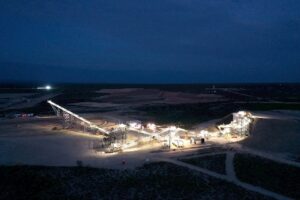The world is finally starting to pay attention to the importance of ‘critical minerals’. Different countries have different lists of what those minerals are, but every list includes lithium, rare earths (“REE”), cobalt, copper, nickel, and zinc. (One region mystifyingly includes rubber on its list, but I digress.)
The problem is, most people are missing the point of why these minerals are critical and what that means for private ownership. So let’s go back to basics.
The Importance of Critical Minerals
One of the definitions of the word critical is “important or vital; irreplaceable”. When it comes to the Green Revolution, that definition is spot on. Critical minerals are irreplaceable in the march away from fossil fuels. Without those minerals, we will continue to use fossil fuels until a better technology comes along, decades from now, during which interlude we will choke out Mother Earth.
But saying ‘we need those minerals to make rechargeable batteries and permanent magnets’ is rather simplistic. That’s not really the point. A recent article in The Economist gives better arguments about why the Green Revolution is good for countries, apart from saving the planet.
The article titled “The green revolution will stall without Latin America’s lithium” argues that nationalizing critical mineral deposits and mines (and by extension, minerals like silver that aren’t on critical mineral lists) offers benefits like a broadened tax base and more jobs within the country. Nationalization, it argues, can be good for the economy.
That argument rings hollow with me. Jobs can be created and taxes can be paid without the national government owning the assets. Mining rights can be exercised by foreign companies under a regime without the government getting into the mining business, plus does any government operate any business well? The Economist has missed the point.
Companies are Protecting Vertical Supply Chains for Critical Minerals
Before we get to the point, let’s revisit the February 2023 announcement of a General Motors Company (NYSE: GM) investment into Lithium Americas Corp. (TSX: LAC), which holds among other assets Thacker Pass. Thacker Pass is the largest known potential source of lithium in the United States of America. We’ve seen other investments from auto manufacturers into lithium companies.
Do you think they’re doing this as a long-term investment to be monetized at some point in the future? When one of the shadow Chinese investment companies invests in a critical minerals company, do you think it’s for the portfolio?
No, these are not portfolio investments. These are functional investments into irreplaceable assets. Everyone is worried about the vertical supply chain for those critical minerals for their own uses.
GM is looking to ensure it has access to lithium for its own purposes. GM isn’t going to share the lithium eventually produced at Thacker Pass (assuming Thacker Pass overcomes community challenges and gets into production).
Mercedes-Benz Group AG (XTRA: MBG) won’t share the lithium it gets from Rock Tech Lithium Inc. (TSXV: RCK), northwest of Thunder Bay, Ontario. These investments are to help ensure a vertical supply chain of lithium. Expect other investments into other critical minerals.
Countries are now Protecting Vertical Supply Chains for Critical Minerals
What did The Economist miss? Countries aren’t nationalizing or protecting mineral assets for tax or employment reasons. They are doing so to protect their own vertical supply chains for critical minerals. To do otherwise would be to turtle, to offer up a neck to be crushed by a foreign actor who has such minerals.
Countries like Peru, Argentina, Mexico, the Congo, and Kazakhstan have either announced or enabled plans to nationalize their natural resources.
Even nice Canada has taken some steps to put the ownership of Canadian assets into more friendly hands (too little, too late).
These countries won’t be the last.
When you’re investing, jurisdictional risk just became one of the largest risks to consider.
Editor: Peter Clausi
Mr. Clausi is an experienced investment banker, executive, director and shareholder activist. A graduate of Osgoode Hall Law School called to Ontario’s bar in 1990, Mr. Clausi has…
This article was published by: Peter Clausi
Visit the original article here



